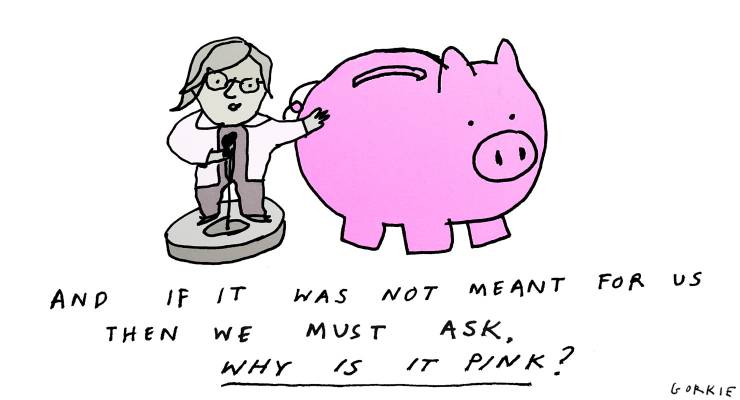
When I read the Women’s Economic Equality Taskforce’s (WEET) pre-budget recommendations and the accompanying letter addressed to Minister for Women Katy Gallagher, both published earlier this week, I was struck — and deeply impressed — by how bold they were.
The language, later reinforced in an interview that WEET chair Sam Mostyn gave to RN Breakfast, was direct and challenging. The time is now, was the message. If not, when?
Mostyn and the other eight taskforce members have essentially issued a direct challenge to the Albanese government: if you want to prove to understandably sceptical Australian women that you mean all those nice words and promises in your first women’s budget statement in October, adopt these six initial recommendations in the upcoming May budget in full (and don’t cherry-pick).
To fully understand where this is coming from and how far we’ve come, let’s revisit this October statement — and also cast our eyes back to the pitiful decade of stalled progress Australian women have endured.
In the statement’s foreword, co-signed by the newly elected prime minister, the treasurer and the minister for women (a significant change in practice that Mostyn has consistently pointed out), gender equality was described as essential to Australia’s prosperity and at the centre of actions and investments.
What’s more, the foreword stated the goal was to make Australia “one of the most gender-equal countries in the world”. That’s quite a significant promise that three of the most senior ministers in the new government put their names to. It would require considerable work to reverse Australia’s — and Australian women’s — tumbling fortunes.
Australia has experienced a significant backwards slide in the World Economic Forum’s Global Gender Gap rankings, slipping from 15th out of 153 countries in 2006 when the ranking was first published, to bottoming out at 50th in 2021. Australia has since inched up the rankings slightly, now sitting at 43rd, but there’s still a lot of ground to regain.
Mostyn and her colleagues are challenging the Albanese government to make good on the promises made in their October statement. It’s remarkable just how direct and challenging they’re being but also how, in this new political landscape, experts like Mostyn not only feel they can speak freely but are being invited to do so.
Not too long ago — flashback to that 2020 budget, delivered at the height of a COVID-induced recession that disproportionately impacted women, a budget described as a “blokefest”, a hi-vis, hard-hat spectacular — women were told “no one credible” agreed with their pushback. But here we are, thanks in no small part to the many who would not, and still will not, remain silent.
The taskforce’s recommendations include the reinstatement of the single parenting payment, the abolition of the ParentsNext program, the abolition of the childcare subsidy activity test, payment of superannuation for primary carers while they are on paid parental leave, increasing the rate of Commonwealth rental assistance to improve women’s immediate housing security, and an interim pay-rise for all early childhood educators and aged care workers in recognition of the historical undervaluation of their work.
But, to be clear, this is just the beginning. The taskforce believes these changes must be effected now in the upcoming budget as a matter of urgency (many would argue they should have been done much, much earlier). Other significant, necessary work will be ongoing, part of a “decades-long” project.
The letter describes the extent to which the taskforce members feel a sense of urgency drawn from the stories heard from their extensive consultations. They write of women feeling “frustrated, disappointed, and angry that more is not done to improve gender equality”.
I was reminded of sex discrimination commissioner Kate Jenkins who just last week stepped down after a seven-year term, an advocate for gender equality and women’s safety who was likewise radicalised by the experiences of women she heard while consulting for landmark Respect@Work sexual harassment inquiry.
“I have been devastated by the experiences of sexual harassment within the workplace,” Jenkins said at the time. “I have heard through the inquiry the harms suffered by victims.”
And I was reminded of how Jenkins resisted — and ultimately persisted — any attempts to cherry-pick from among her 55 recommendations, leading to all 55 recommendations eventually being adopted, including the revolutionary “positive duty” on employers to prevent sexual harassment, which was legislated late last year.
In Mostyn and her colleagues on the taskforce, Australia has found another group of bold changemakers committed to listening, giving voice, and channelling Australian women’s very real frustrations into effective change. And judging by the tone of that letter, they’re determined not to let them down. It’s quite something, really.








I hope they get everything they ask for and more
women predominante in humanities at Uni and neo libs increased the fees -and the lack of superannuation to lower paying jobs in angel professions .. add to that sexism and ageism oh and womens work for gratis rearing the next generation … The system and the govt failure ongoing is a disgrace
Women’s gender pay gap is still evident in the problems of child care staffing and nursing because feminised jobs are undervalued. We need to look at experience as a qualification, as much is learned in unpaid care work. Transferring them to stem jobs has created more cuts to these pay rates in some cases. Sexism must be addressed now, and value to unpaid work created to raise the current pay gaps.
I’m afraid I don’t like Albanese. I guess I thought we’d be getting a Labor government which would look after the people the Liars Party left behind. Silly me. All we’ve got is a slightly better Liars Party.